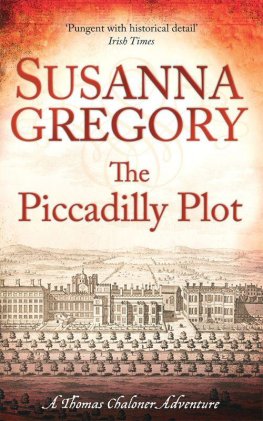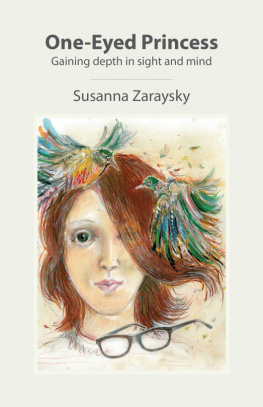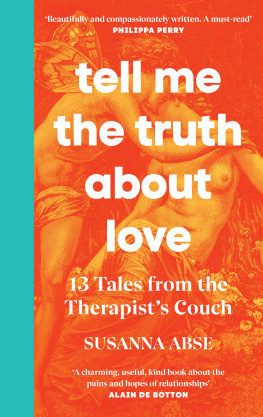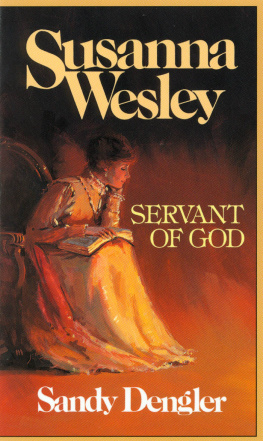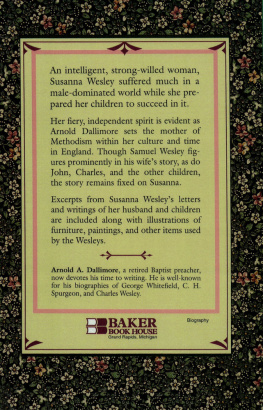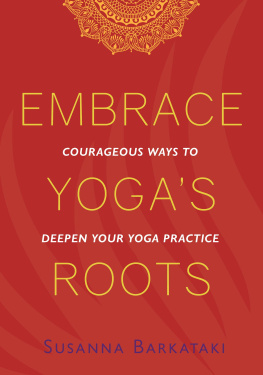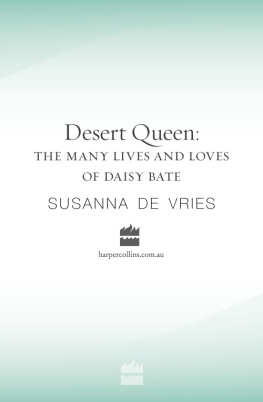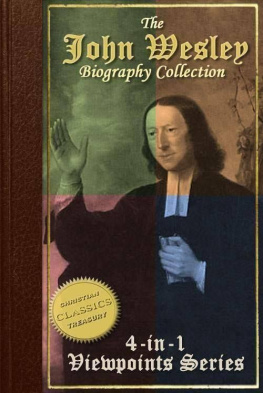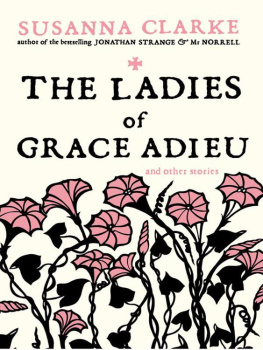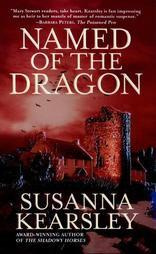Wesley Susanna - Susanna Wesley
Here you can read online Wesley Susanna - Susanna Wesley full text of the book (entire story) in english for free. Download pdf and epub, get meaning, cover and reviews about this ebook. year: 1997, publisher: Oxford University Press, genre: Home and family. Description of the work, (preface) as well as reviews are available. Best literature library LitArk.com created for fans of good reading and offers a wide selection of genres:
Romance novel
Science fiction
Adventure
Detective
Science
History
Home and family
Prose
Art
Politics
Computer
Non-fiction
Religion
Business
Children
Humor
Choose a favorite category and find really read worthwhile books. Enjoy immersion in the world of imagination, feel the emotions of the characters or learn something new for yourself, make an fascinating discovery.

- Book:Susanna Wesley
- Author:
- Publisher:Oxford University Press
- Genre:
- Year:1997
- Rating:4 / 5
- Favourites:Add to favourites
- Your mark:
- 80
- 1
- 2
- 3
- 4
- 5
Susanna Wesley: summary, description and annotation
We offer to read an annotation, description, summary or preface (depends on what the author of the book "Susanna Wesley" wrote himself). If you haven't found the necessary information about the book — write in the comments, we will try to find it.
Susanna Wesley — read online for free the complete book (whole text) full work
Below is the text of the book, divided by pages. System saving the place of the last page read, allows you to conveniently read the book "Susanna Wesley" online for free, without having to search again every time where you left off. Put a bookmark, and you can go to the page where you finished reading at any time.
Font size:
Interval:
Bookmark:
Susanna Wesley

The Complete Writings

Edited by
CHARLES WALLACE JR.

Oxford University Press
Oxford New York
Athens Auckland Bangkok Bogota Bombay Buenos Aires
Calcutta Cape Town Dar es Salaam Delhi Florence Hong Kong
Istanbul Karachi Kuala Lumpur Madras Madrid Melbourne
Mexico City Nairobi Paris Singapore Taipei Tokyo Toronto
and associated companies in
Berlin Ibadan
Copyright 1997 by Oxford University Press, Inc.
Published by Oxford University Press, Inc.
198 Madison Avenue, New York, New York 10016
Oxford is a registered trademark of Oxford University Press
All rights reserved. No part of this publication may be reproduced,
stored in a retrieval system, or transmitted, in any form or by any means,
electronic, mechanical, photocopying, recording, or otherwise,
without the prior permission of Oxford University Press.
Library of Congress Cataloging-in-Publication Data
Wesley, Susanna Anncslcy, 16701742.
[Works. 1996]
Susanna Wesley : the complete writings / edited by Charles Wallace, Jr.
p. cm.
Includes bibliographical references
ISBN 0-19-507437-8
I. Wallace, Charles. II. Title.
BX849S.M55A2 1996
287092dc20 958821
[B]
1 3 5 7 9 8 6 4 2
Printed in the United States of America
on acid-free paper
To
Miriam Shroyer Wallace
(1921-1985)
and
Charles I. Wallace Sr.,
not Susanna and Samuel (thank goodness!),
but extraordinary parents in the Wesleyan tradition
G iven the keen interest in recovering womens voices in the history of both church and society, the time is ripe for a careful presentation of the work of Susanna Wesley. Though much of her literary output has appeared in print since her death, a good deal of it has suffered at the hands of Victorian editors or has only been published in obscure and now defunct denominational journals. The entire corpus has heretofore never been gathered in one place.
I offer this edition in the hope that her own voice may be heard more fully than before, thus providing material for a careful reassessment of a remarkable woman. She deserves to be regarded not just as the mother of the founders of Methodism but also as a fascinating figure in her own right, a woman enmeshed in and yet pushing against many of the patriarchal constraints of early eighteenth-century church and society. In addition, her story will supplement those of other women and give a more balanced and complete picture of religion, literature, and society in the early eighteenth century.
Thirteen years is a long time to be occupied with an editing project, even if the subject matter is the nearly lifelong output of a prolific individual. Along the way many debts have been accrued and many changes have taken place.
In the first category, I am happy first to name Frank Baker, doyen of Wesley scholars and my graduate school mentor. His presentation on Susanna Wesley at the pioneering Women in New Worlds Conference in 1980 helped focus United Methodist historical work on the recovery of womens experience and, in particular, prodded me to investigate a complete works of Susanna. Typically, his support included not only advice and counsel but also access to his collection of rare Methodistica. Other scholars in the field have also aided and abetted me in various ways: John Newton and John Vickers in England; Bob Burtner, Doug Chandler, Dale Johnson, Fred Maser, Russ Richey, and Ken Rowe in the United States; Joanne Brown and the late Elizabeth Hart (whose scholarship and enthusiasm I miss greatly) in Canada.
In addition to those sharing my specialized interests, I am grateful for the support of colleagues at Western Maryland College (Ira Zepp and Bob Hartman), Wesley Theological Seminary (particularly the late Clarence Goen), and especially at Willamette University (Jim Hand, Dave McCreery, Doug McGaughey and Lane McGaughy). Peter Williams and Charles Hambrick-Stowe, distinguished scholars in American religious history and good friends, have contributed in both these capacities.
The librarians and staffs of the two major depositories of Susanna Wesley manuscripts deserve special thanks: the Methodist Archives at the John Rylands University Library, Manchester, and the library at Wesley College, Bristol. Thanks also go to Hartley-Victoria College, Manchester, which provided hospitality and accommodations for the week I spent working in the Methodist Archives. I am grateful to the other owners of manuscripts: Wesleys Chapel, London; the Methodist Historical Society, Baltimore; the Melbourne Public Library; and Peter Conlan of Bromley, Kent. Two major research libraries were indispensable in the detective work connected with tracing many of Susanna Wesleys intellectual sources: the British Library and the Henry E. Huntington Library. Willamette University provided funds from the National Endowment for the Humanities to subsidize a trip to the latter. When research forays were not possible, the Mark O. Hatfield Library at Willamette was a ready source of interlibrary loans and computer search expertise. Willamette president Jerry Hudson and three successive deans of the College of Liberal Arts, Jerry Berberet, Julie Ann Carson, and Lawrence Cress, also provided support, both moral and financial, in the course of the project.
I am happy to list the string of conscientious work-study student assistants at Willamette who have entered text, proofread, and helped with the annotation: Rachel Hill, Meg Dupuis, John Watson, and Julie Weddle. Leslie Bandfield, Carolyn Kilday and Betty Smith lent their word-processing expertise. My administrative assistant, Holli Davenport, kept the Chaplains Office functioning when I was distracted with Susanna. Ed Arabas provided the two expertly drawn maps.
I note with pleasure that Susanna Wesley is receiving her academic due in this edition, however indirectly, from the university that educated her father, husband, and sons but had no place for her (or any other women) in her own day. Special thanks for their complicity, therefore, go to the helpful and patient editors at Oxford University Press, Cynthia Read, Cynthia Carver, Paula Wald, and Peter Ohlin.
Feminist scholarship has reinforced the historians proclivity to examine the context of any intellectual work. My greatest debts in this project are to the women in my life, all of whom participate in what a Methodist Jungian might call the Susanna archetype (though I hasten to add that that may be more my projection than their objectively viewed character traits). In naming them, I am aware of the mystery of change that is as central to our lives as it is to the history we study. Still alive when I began the project were Edna Laird Wallace and Helen Rex Shroyer, my grandmother and step-grandmother, and Miriam Shroyer Wallace, my mother. They are gone, but they live on as examples of strong women. Four others of a similar persuasion have, wittingly or not, marked this project over its long duration. I gratefully acknowledge Betsy Sargent, quondam uxor and continuing friend; Dee-dee Walters, gifted priest and affectionate companion; and my daughters, Hannah and Molly Wallace, wonderful uppity women of the rising generation.
Norman Maclean concludes his profoundly male book,
Next pageFont size:
Interval:
Bookmark:
Similar books «Susanna Wesley»
Look at similar books to Susanna Wesley. We have selected literature similar in name and meaning in the hope of providing readers with more options to find new, interesting, not yet read works.
Discussion, reviews of the book Susanna Wesley and just readers' own opinions. Leave your comments, write what you think about the work, its meaning or the main characters. Specify what exactly you liked and what you didn't like, and why you think so.

